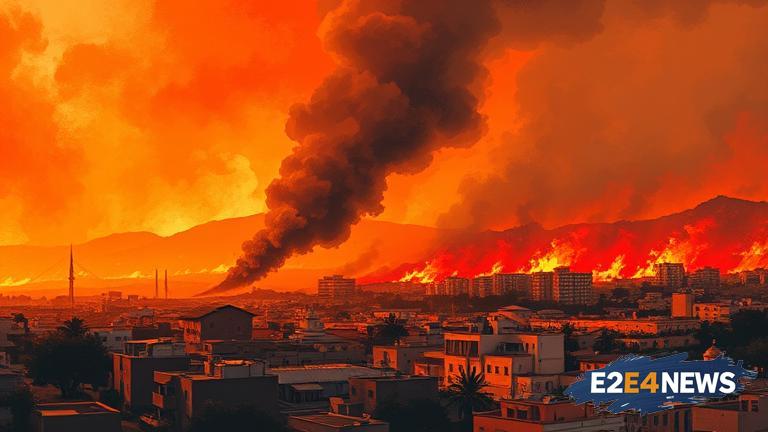The recent Limassol wildfire in Cyprus has brought to the forefront the country’s vulnerability to natural disasters, sparking a national conversation about preparedness and prevention. The fire, which has been described as one of the worst in the country’s history, has destroyed thousands of acres of land, displacing numerous families and causing widespread destruction. As the country struggles to come to terms with the scale of the disaster, many are left wondering how this crisis could have been prevented. Cyprus, an island nation located in the eastern Mediterranean, is prone to wildfires due to its dry climate and strong winds. Despite this, the country’s emergency services were caught off guard by the ferocity of the blaze, which quickly spread out of control. The fire has raised questions about the country’s disaster preparedness, with many criticizing the government for not doing enough to prevent such disasters. In recent years, Cyprus has experienced an increase in wildfires, with the majority being caused by human activity. The country’s authorities have been accused of not taking adequate measures to prevent wildfires, such as implementing effective forest management policies and conducting regular fire drills. The Limassol wildfire has also highlighted the need for better coordination between emergency services, with many responding to the disaster describing a lack of communication and resources. As the country begins to rebuild and recover from the disaster, there are calls for a comprehensive review of Cyprus’s disaster preparedness policies. The government has announced an investigation into the cause of the fire, which is believed to have been started by a combination of human activity and strong winds. The investigation is expected to examine the role of human error, as well as the effectiveness of the country’s emergency response systems. In the meantime, the people of Cyprus are coming together to support those affected by the disaster, with many donating food, clothing, and other essential items to those in need. The international community has also pledged its support, with several countries offering aid and assistance to help the country recover. As Cyprus looks to the future, it is clear that the country must take a proactive approach to preventing natural disasters. This includes implementing effective policies and procedures, as well as investing in emergency response systems and infrastructure. The country must also work to raise awareness about the importance of disaster preparedness, educating the public about the risks and consequences of wildfires. By taking a comprehensive and proactive approach, Cyprus can reduce the risk of future disasters and ensure that its citizens are safe and protected. The Limassol wildfire is a wake-up call for the country, highlighting the need for urgent action to address the root causes of the disaster. It is only by working together that Cyprus can prevent such crises from occurring in the future. The country’s authorities must take a leadership role in this effort, working to implement effective policies and procedures that prioritize the safety and well-being of its citizens. As the people of Cyprus look to the future, they are determined to rebuild and recover from the disaster, using the lessons learned to create a safer and more resilient community. The Limassol wildfire is a devastating reminder of the importance of disaster preparedness, highlighting the need for urgent action to address the root causes of the crisis. By working together, Cyprus can create a better future for its citizens, one that is safe, resilient, and protected from the risks of natural disasters.
